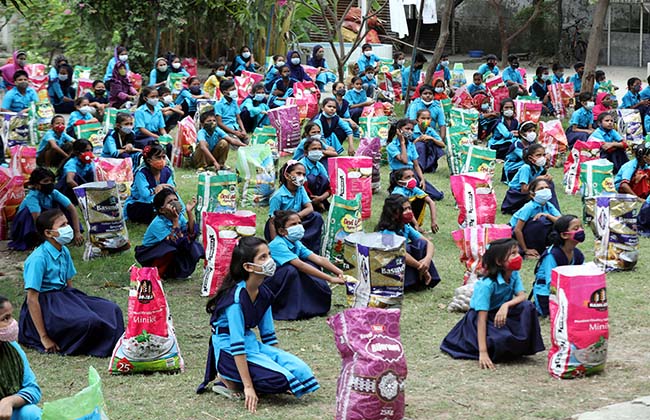
The United Nations Food and Agriculture Organisation (FAO) feared a global food crisis due to the Covid-19 pandemic. Although agricultural production has increased a bit compared to that in last year, the fear of a possible food crisis has not gone yet. Global food stocks are declining in proportion to the demand. The International Grain Council (IGC) fears that global food grain stocks will fall to a five-year low. This is as worrying for the whole world as it is for Bangladesh. Therefore, the policymakers are expected to take timely action to deal with an imminent crisis.
News of declining food grain stocks in the world has come at a time when food grain stock at the government level is also at the bottom in the country. To keep the domestic market stable and to cope with the crisis, it is essential to have a minimum of 1.5 million tonnes of rice in government warehouses. But in recent times, the stock of rice has come down to 4.5-5 lakh tonnes, the lowest in the last 13 years. This time, the wrong policy of the food ministry is mainly responsible for the decrease in rice stocks. Paddy production was low last year due to cyclone Amphan and floods. In this situation, the prime minister gave permission to import rice in August last. But the food ministry took five months to start the import process. Before the end of the import process, the country saw the second wave of the coronavirus in February. Most of the imported rice is expected to come from India. But rice imports from India have stumbled due to a sharp rise in Covid infections. As a result, stocks come down to record lows. The Ministry of Food has failed to procure paddy and rice as per the target for the last two years. All these have resulted in a crisis in the stock. If this situation continues, there may be a food shortage in the country. And globally, as stockpiles are deteriorating, the chances of importing food grains are slim. So, there is no immediate option to increase government reserves.
Bangladesh is prone to natural disasters. Natural disasters like floods, cyclones, river erosion often occur in the country. As a result, poor people in different areas face a food and livelihood crisis. To keep them alive, the government has to provide food aid to them from its stock almost all the year round. Now the second wave of the pandemic is going on. There is a risk of many natural disasters including floods and cyclones. Meanwhile, the global situation is not favourable. Globally, food grain stocks continue to decline. In this situation, it will not be easy to ensure the supply of food grains from external sources. In that case, it is difficult to handle an emergency situation. Therefore, taking into account the global and domestic situation, it is expected that immediate steps will be taken to build safe stocks of food grains in the country through a transparent procurement process.


